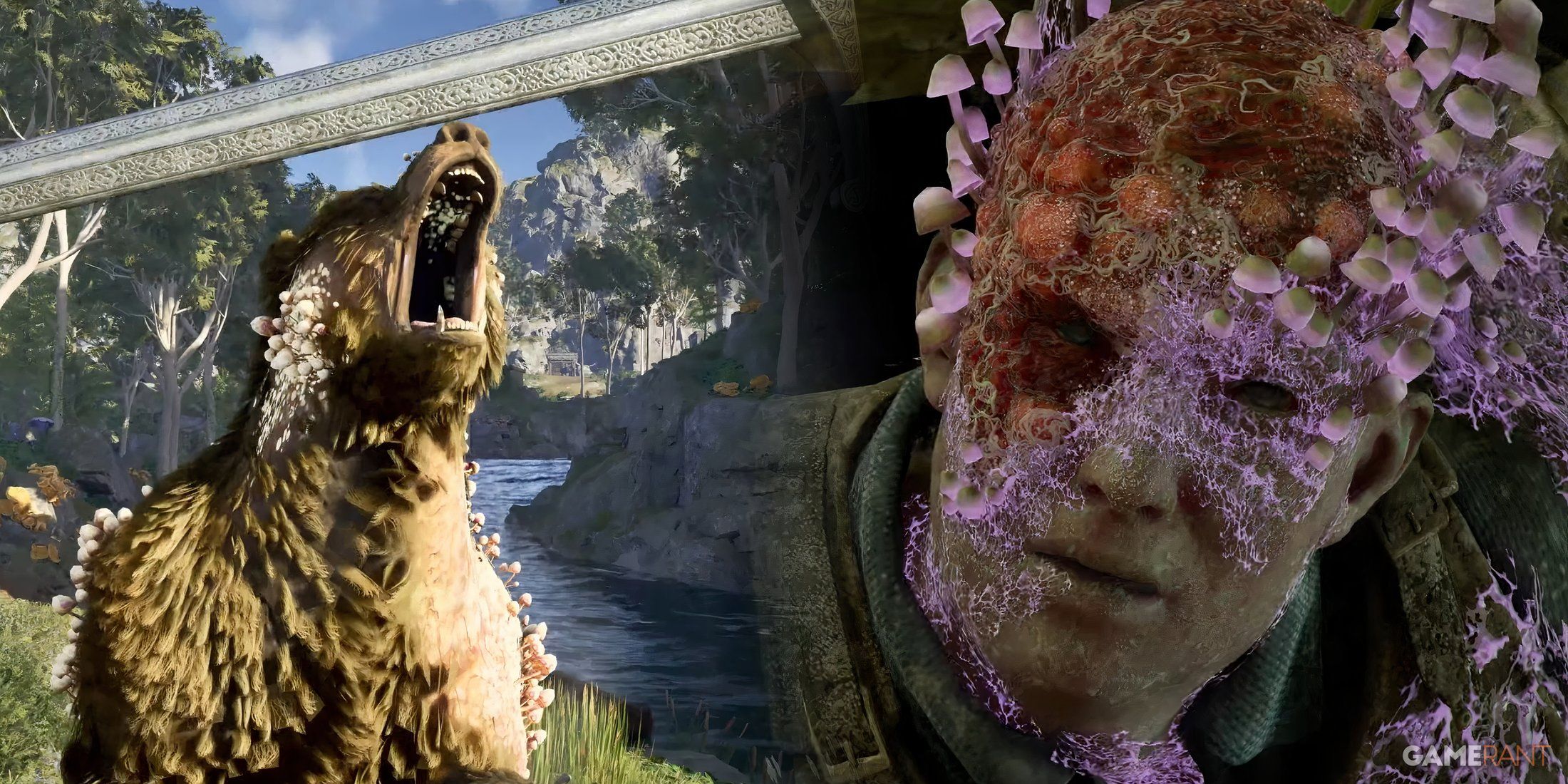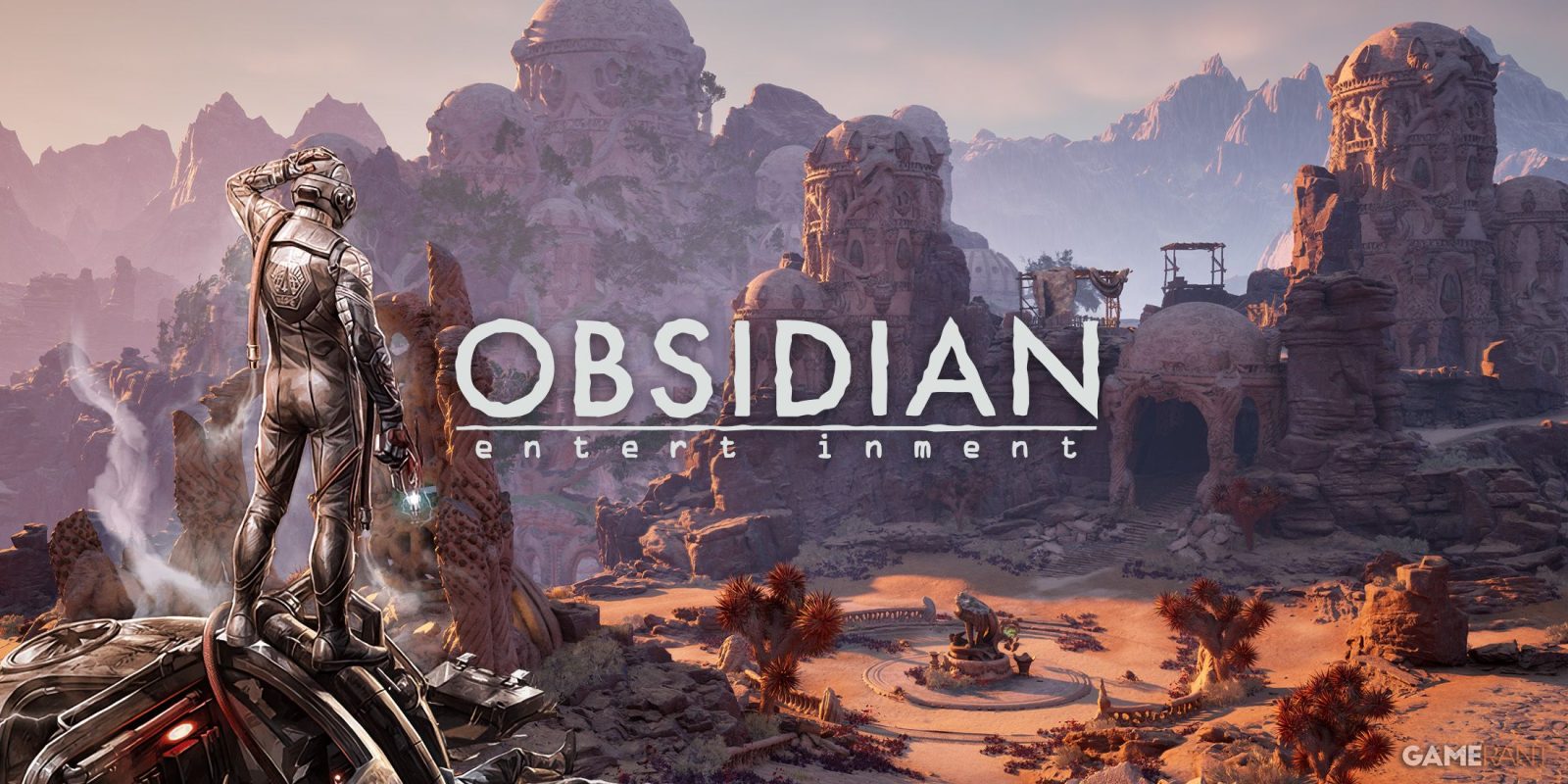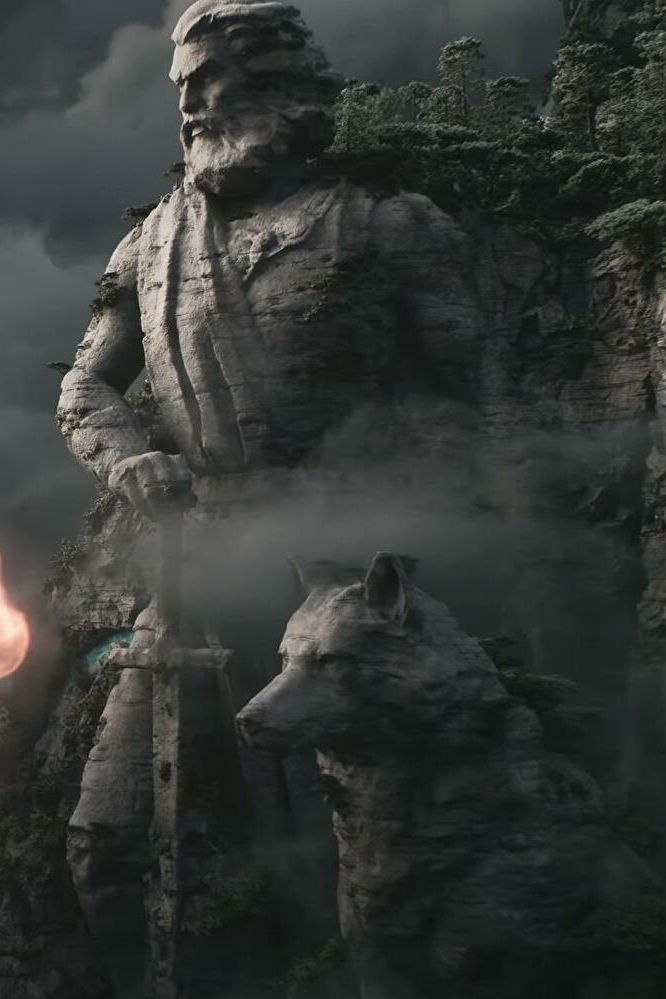As hype continues to build around Obsidian Entertainment’s upcoming Avowed, it’s become clear that its bold subversion of several current trends in the action RPG genre could end up setting the tone for years to come after its release. By shifting away from the type of open-world design that has become ubiquitous in recent years, the studio seems set on following up on the style of The Outer Worlds even while returning the world of Pillars of Eternity‘s Eora.
While its reputation grew significantly after the success of the open-world Fallout: New Vegas, Obsidian first established itself with the level-based KOTOR2 and has continued to show a knack for that design in most of its catalog. The more story-centric style of breaking a game’s world down into sections can support a more realized feeling of progression instead of effectively becoming a checklist of tasks on a broad singular map. Given how long Avowed has been in production, this direction for Obsidian will probably remain beyond its release.

Related
Avowed’s Dreamscourge Plague Explained
Avowed’s protagonist is tasked with investigating a devastating plague known as the Dreamscourge, but this disease is far from normal.
The Outer Worlds Subverted the Open-World Trends of Modern RPGs
The Benefits of a Return to Elements of Linearity
It can be argued that The Outer Worlds counts as an open-world game due to the freedom it provides the player in tackling its scattered quests, but it doesn’t feature a proper location where everything is set. While the player may be free to head out for several different places across outer space besides the initially encouraged Groundbreaker ship, the power levels of the enemies found on different locations vary in a manner that outlines a general progression for the player. Even though the content can be tackled at will, the degrees of challenge encountered steer the player toward a certain order of events, with most areas physically isolated from each other.
Open-World Experiences Don’t Always Complement Character-Driven Narratives
With the importance of The Outer Worlds‘ cast of companions, their ties to various locations can define those places within a playthrough. Not only are they found across different parts of space, but each of their respective personal quests tend to take the player to yet another separate place for the sake of their own arc. When this sort of traveling back and forth occurs in a single map, however, it can slow the pace of exploration as the player retreads the same ground repeatedly.
Avowed’s Approach to Quality-Over-Quantity is Poised for Long-Term Appeal
The Replayability of a Branching Narrative Can Outshine Open-World Freedom
Over the course of its promotional unveiling, the developers behind Avowed have repeatedly expressed that the game is not set on chasing the popularity of a totally open-ended gameplay structure. In an interview for Avowed with RPG Site, director Carrie Patel detailed the title’s similarities to The Outer Worlds:
…an open zone structure where you have these different regions that you’ll visit that each have kind of their own leg of the critical path, their own series of side quests, and their own set of local concerns that, reflect more broadly on the larger stories of the living lands.
This type of “open-zone” style doesn’t devalue player choice, as it actually bears the potential to enhance the weight of consequences by presenting them in more intimate contexts that feature bespoke character interactions. This practically ensures that multiple playthroughs are required to see everything on offer.
Obsidian Entertainment is Unlikely to Shift Gears on Its Next Project
After years of commitment to RPGs that don’t prioritize raw breadth, it’s doubtful that Obsidian will stop cultivating what has become its own trend. With Avowed apparently delayed for the sake of its release schedule over actually requiring more development time, the extra level of polish possibly being added to the title could secure the future of the studio as one built on strengths like the lasting impact of The Outer Worlds.















Leave a Reply